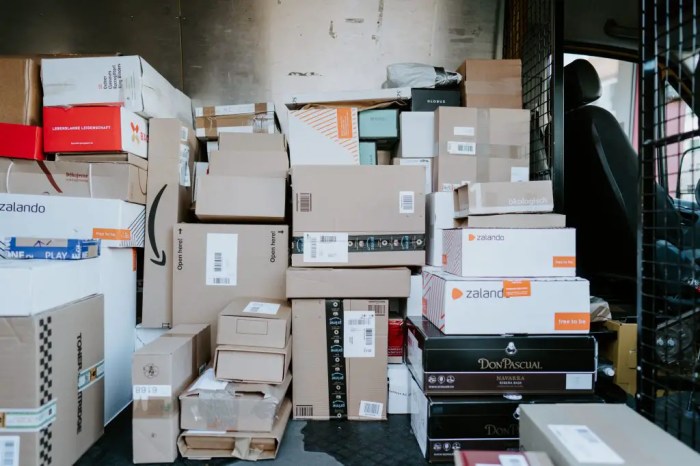Understanding the Consignment Market for Wedding Dresses
Consignment for wedding dresses – The consignment market for wedding dresses is a thriving sector within the broader pre-owned luxury goods market. Driven by sustainability concerns and economic considerations, it offers brides-to-be a cost-effective way to acquire stunning gowns, while providing previous owners a means to recoup some of their investment.
Current Trends in the Consignment Market for Wedding Dresses
Current trends show a growing preference for sustainable and eco-conscious choices, boosting the popularity of pre-owned wedding dresses. The market also reflects evolving fashion trends, with classic styles remaining popular alongside contemporary designs. Online platforms are increasingly important, facilitating wider reach and easier access for both buyers and sellers.
Key Demographics of Buyers and Sellers

Source: kleinfeldbridal.com
Buyers typically range from budget-conscious brides to those seeking unique or designer gowns at a fraction of the retail price. Sellers are often brides who wish to recoup some of the cost of their wedding dress after the event. Both groups are increasingly digitally savvy and comfortable using online marketplaces and consignment shops.
Pricing Strategies Used by Consignment Shops

Source: com.au
Consignment shops employ various pricing strategies. Some use a fixed percentage commission, while others negotiate a price based on the dress’s condition, designer, and age. Many consider the original retail price and the current market value of similar gowns. Competition and demand also play a significant role in price setting.
Legal and Ethical Considerations in Reselling Wedding Dresses
Legal considerations include ensuring clear contracts that Artikel responsibilities, commission percentages, and timelines. Ethical considerations involve transparent pricing, accurate descriptions of the dress’s condition, and prompt communication with both buyers and sellers. Addressing potential issues like damage or alterations honestly is crucial for maintaining trust.
Benefits and Drawbacks of Consigning a Wedding Dress: Consignment For Wedding Dresses
Consigning a wedding dress offers several advantages over other selling methods, but also presents some potential drawbacks. A thorough understanding of both is crucial for making an informed decision.
Financial Advantages of Consigning vs. Other Methods
Consigning often yields higher returns than selling privately, as consignment shops handle marketing and sales. It also saves sellers the time and effort of managing individual transactions and shipping. Compared to selling on platforms with high fees, consignment offers a potentially more lucrative outcome.
Potential Drawbacks of Consigning a Wedding Dress
The main drawback is the time it takes to sell the dress. The commission paid to the consignment shop reduces the overall profit. There’s also the risk that the dress may not sell within the agreed-upon timeframe, resulting in a lower return or the need to reclaim the dress.
Examples of Successful Consignment Experiences
Many brides have successfully consigned their wedding dresses, recouping a significant portion of the original cost. Online testimonials and reviews often showcase positive experiences, highlighting the convenience and financial benefits. Success often depends on choosing a reputable consignment shop and properly preparing the dress for sale.
Comparison Table: Consigning a Wedding Dress
| Method | Cost | Time | Potential Return |
|---|---|---|---|
| Consignment Shop | Commission (e.g., 40-60%) | Variable, can take weeks to months | Potentially high, depending on dress and market |
| Online Marketplace (e.g., eBay, Poshmark) | Listing fees, transaction fees | Variable, depends on marketing and demand | Potentially moderate, after fees |
| Private Sale | Minimal | Can take a long time, requires active marketing | Potentially high, but requires effort |
Finding and Selecting a Reputable Consignment Shop
Choosing the right consignment shop is crucial for a successful selling experience. Several factors should be considered to ensure a trustworthy and beneficial partnership.
Checklist for Evaluating Consignment Shops
A reputable consignment shop will have a strong online presence with positive reviews, transparent pricing policies, and a clear contract outlining terms and conditions. They should also provide professional photography and marketing services. Inquire about their experience with wedding dress consignment and their sales process.
Sample Consignment Contract Clauses
A comprehensive contract should specify the consignment period, commission percentage, payment terms, dress condition, responsibility for damage, and dispute resolution mechanisms. It should also clarify ownership and return policies. Both parties should carefully review and understand all clauses before signing.
Step-by-Step Guide for Preparing a Wedding Dress
Before consigning, professionally clean and press the dress. Take high-quality photos showcasing its details and condition. Include accurate measurements and any relevant information about alterations or accessories. Thorough preparation significantly increases the chances of a quick sale.
Communicating with a Consignment Shop
Effective communication involves clear and concise descriptions of the dress, realistic pricing expectations, and prompt responses to inquiries. Maintain open communication throughout the consignment process to ensure a smooth and successful experience. Be prepared to negotiate but maintain realistic expectations.
Marketing and Selling a Consigned Wedding Dress
Effective marketing strategies are essential for maximizing visibility and attracting potential buyers. Highlighting key selling points and creating compelling descriptions are crucial for success.
Effective Marketing Strategies
Utilize high-quality professional photographs that showcase the dress in its best light. Write compelling descriptions that highlight key features, such as designer, style, condition, and size. Leverage social media and online marketplaces to reach a wider audience. Consider offering flexible payment options.
Key Selling Points for Consigned Wedding Dresses
Emphasize the designer brand (if applicable), the unique style and details, the excellent condition, and the significant cost savings compared to buying new. Highlight any special features, such as intricate beading or unique fabric. Mention the size and any alterations that have been made.
Examples of Compelling Descriptions, Consignment for wedding dresses
Example 1: “Stunning Vera Wang gown, size 8, ivory, in excellent condition. Features delicate lace detailing and a flowing A-line silhouette. Originally $4,000, now available for a fraction of the cost.” Example 2: “Elegant Maggie Sottero ballgown, size 10, champagne, gently used. Beautiful beading and a flattering fit. Perfect for a classic, romantic wedding.”
Ideal Product Listing Visual Representation
The listing would feature at least three professional photographs showcasing the dress from different angles: a full-length shot, a close-up of the details, and a shot showing the back. The description would include the designer (if known), size, color, condition, fabric, style, original price (if available), and selling price. It would also include accurate measurements and details about any alterations or included accessories.
The Customer Experience in Consignment Wedding Dress Sales
Exceptional customer service is crucial for building trust and ensuring a positive experience for both buyers and sellers. Effective communication and proactive problem-solving are key.
Importance of Customer Service
Prompt and professional communication builds trust and encourages repeat business. Addressing inquiries and concerns promptly and efficiently fosters a positive reputation. A positive customer experience contributes to the overall success of the consignment shop.
Communication Methods

Source: theidoguide.com
Utilize various communication methods, including email, phone calls, and messaging apps. Respond to inquiries promptly and professionally. Provide clear and concise information. Be readily available to answer questions and address concerns.
Handling Customer Inquiries and Concerns
Listen actively to customer concerns, offer solutions, and strive for mutually agreeable outcomes. Address complaints promptly and professionally. If necessary, escalate issues to appropriate personnel. Maintain a calm and professional demeanor throughout the interaction.
Examples of Positive and Negative Customer Interactions
Positive: A prompt response to an inquiry, clear and accurate information about the dress, and a smooth transaction. Negative: Delayed responses, inaccurate information, and a lack of responsiveness to complaints.
User Queries
What is the typical commission rate for consigning a wedding dress?
Commission rates vary widely depending on the consignment shop, typically ranging from 30% to 50% of the final sale price.
How long does it typically take to sell a consigned wedding dress?
The time it takes to sell a consigned wedding dress varies greatly, ranging from a few weeks to several months, depending on factors such as dress style, pricing, and market demand.
Consignment offers a fantastic way to acquire stunning wedding gowns at a fraction of the retail price. Finding the perfect dress is crucial, and for those with a larger bust, selecting a supportive and flattering style is key. If you’re looking for options, check out this helpful guide on best wedding dresses for big bust to inform your search.
Ultimately, whether you buy new or through consignment, remember to prioritize comfort and confidence on your special day.
What if my dress doesn’t sell within the consignment period?
Most consignment shops have a set timeframe for listing a dress. If it doesn’t sell within that period, you’ll typically have the option to retrieve your dress or extend the listing for an additional fee.
What types of payment methods do consignment shops usually accept?
Consignment shops generally accept various payment methods, including credit cards, debit cards, and sometimes even financing options.

